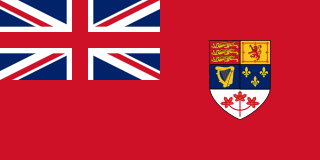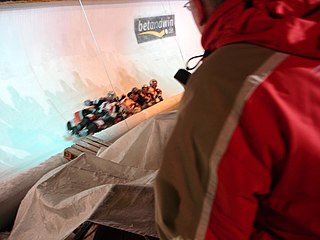
The 1964 Winter Olympics, officially known as the IX Olympic Winter Games and commonly known as Innsbruck 1964, was a winter multi-sport event which was celebrated in Innsbruck, Austria, from January 29 to February 9, 1964. The city was already an Olympic candidate, unsuccessfully bidding to host the 1960 Games. Innsbruck won the 1964 Games bid, defeating the cities of Calgary in Canada and Lahti in Finland. The sports venues, many of which were built for the Games, were located within a radius of 20 km (12 mi) around Innsbruck. The Games included 1,091 athletes from 36 nations, which was a record for the Winter Games at the time. Athletes participated in six sports and ten disciplines which bring together a total of thirty-four official events, seven more than the 1960 Winter Olympic Games. The luge made its debut on the Olympic program. Three Asian nations made their Winter Games debut: North Korea, India and Mongolia.

The 1976 Winter Olympics, officially known as the XII Olympic Winter Games and commonly known as Innsbruck 1976, was a winter multi-sport event celebrated in Innsbruck, Austria, from February 4 to 15, 1976. The Games were awarded to Innsbruck after Denver, the original host city, withdrew in 1972. This was the second time the Tyrolean capital had hosted the Winter Olympics, having first done so in 1964.
The 1968 Winter Olympics, officially known as the X Olympic Winter Games, was a winter multi-sport event held in Grenoble, France, from 6 to 18 February 1968. A total of 1,158 athletes representing 37 National Olympic Committees (NOCs)—including Morocco's first delegation—participated in 35 events from 10 different sports and disciplines. The team relay (4 × 7.5 km) event in biathlon was contested for the first time.

Canada competed at the 1964 Winter Olympics in Innsbruck, Austria. Canada has competed at every Winter Olympic Games.

The United Kingdom of Great Britain and Northern Ireland competed as Great Britain at the 1964 Winter Olympics in Innsbruck, Austria.

Alpine skiing has been contested at every Winter Olympics since 1936, when a combined event was held in Garmisch-Partenkirchen, Germany.

Japan was the host nation for the 1998 Winter Olympics in Nagano. It was the second time that Japan has hosted the Winter Games, after the 1972 Winter Olympics in Sapporo, and the third time overall, after the 1964 Summer Olympics in Tokyo.

The Soviet Union (USSR) competed at the 1964 Winter Olympics in Innsbruck, Austria.

France competed at the 1988 Winter Olympics in Calgary, Alberta, Canada. Frank Piccard won France's first Winter Olympic gold medal for 20 years.

France was the host nation for the 1992 Winter Olympics in Albertville. It was the third time that France had hosted the Winter Olympic Games, and the fifth time overall.

Norway competed at the 1964 Winter Olympics in Innsbruck, Austria.

Austria was the host nation of the 1964 Winter Olympics in Innsbruck.

Austria was the host nation for the 1976 Winter Olympics in Innsbruck. It was the second time that Austria had hosted the Winter Games, after the 1964 Winter Olympics, also in Innsbruck.

Switzerland competed at the 1964 Winter Olympics in Innsbruck, Austria.

Finland competed at the 1964 Winter Olympics in Innsbruck, Austria.

Athletes from East Germany and West Germany competed together as the United Team of Germany at the 1964 Winter Olympics in Innsbruck, Austria.

The Olympic Sliding Centre Innsbruck is a venue for bobsleigh, luge and skeleton located in Igls, Austria. The most recent version of the track was completed in 1975 and is the first permanent, combination artificially refrigerated bobsleigh, luge, and skeleton track, serving as a model for other tracks of its kind worldwide. It hosted the bobsleigh, luge, and skeleton competitions for the 2012 Winter Youth Olympics.
For the 1968 Winter Olympics in Grenoble, France, a total of ten sports venues were used. Most venues were constructed between the 1964 Winter Games in Innsbruck and the 1968 Games. Thawing was an issue for the four-man bobsleigh run. They were limited to only two runs. Thawing also affected the men's 500 m speed skating event. Electronic timing in alpine skiing affected the results of the women's giant slalom event. It gave Canada's Nancy Greene a headache for two days despite her gold medal in the event.
For the 1972 Winter Olympics in Sapporo, Japan, a total of twelve sports venues were used. A thirteenth venue which was a reserved luge course was constructed, but never used in actual competition. Construction on all of the venues used took place between 1968 and early 1971 in time for the test events. The Tsuskisamu Indoor Skating Rink was not completed until late 1971 or early 1972 because the number of teams scheduled to compete at the 1972 Games was not known. At the actual luge venue used, a malfunctioning starting gate during the first run led to the results being cancelled and rerun being ordered. The results of this event led to the only tie in Olympic luge history. The ski jumps at Miyanomori and Okurayama served as host venues for the FIS Nordic World Ski Championships thirty-five years later.

For the 1976 Winter Olympics in Innsbruck, Austria, a total of eight sports venues were used. The games were originally awarded to Denver, Colorado in the United States in 1970, but they withdrew in the wake of Colorado residents voting against it for environmental and cost reasons in November 1972. This led to the International Olympic Committee opening up the bids for the games again, eventually awarding them to Innsbruck in February 1973. The Austrian city, having hosted the Winter Olympics in 1964, was in the process of having the venues used for those Games before Denver's with clear cutting of the alpine skiing venues, lessening of the amount of cross-country skiing routes, upgrading the ski jumps, adding lighting in the indoor sports arena to accommodate color television, and the construction of a combination bobsleigh and luge track. After the 1976 Games, the venues have remained in use, hosting events in Nordic skiing and the sliding sports. They hosted some of the events for the Winter Universiade in 2005 and seven of the eight venues served as host for the first Winter Youth Olympic Games in 2012.















